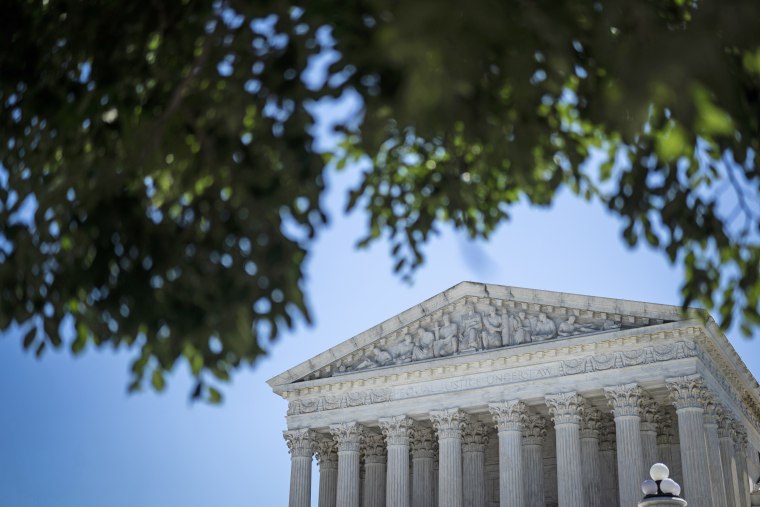WASHINGTON — The Supreme Court on Thursday ruled in favor of a 94-year-old woman over her claim that a Minnesota county violated the Constitution by keeping a $25,000 profit when it sold her home in a tax foreclosure sale.
The court concluded unanimously that Geraldine Tyler can pursue her argument that Hennepin County's decision to keep the surplus violated the takings clause of the Constitution’s Fifth Amendment, which requires that the government pay compensation when property is taken.
Chief Justice John Roberts wrote, in a reference to a passage from the Bible, that taxpayers are only required to pay the government what it is owed.
"The taxpayer must render unto Caesar what is Caesar's but no more," he wrote.
Tyler’s home in Hennepin County, which includes the city of Minneapolis, was seized because she owed $15,000 in taxes and fees. But the county sold the home for $40,000 and kept all the proceeds, Tyler’s lawyers at the Pacific Legal Foundation say.
The conservative group, which often litigates property rights issues, calls the practice “home equity theft.”
"This decision affirms that property rights are fundamental and don’t depend solely on state law. The court’s ruling makes clear that home equity theft is not only unjust, but unconstitutional," said Christina Martin, a Pacific Legal Foundation lawyer.

The group said in a report last year that a dozen states regularly allow a government to take more than it is owed in taxes and that other states have laws that could permit the practice in some circumstances. The remaining states return the surplus proceeds when seized properties are sold.
Six states — Arizona, Colorado, Illinois, Montana, Nebraska and New Jersey — allow private investors to retain equity in properties once delinquent taxes are paid, the foundation says. Others allow the government to pocket the remaining equity when properties are sold.
Tyler bought the one-bedroom condominium in a north Minneapolis neighborhood in 1999 and lived there for more than a decade. It was only after she had moved into a home for seniors that she fell behind on her taxes, starting in 2011.
The county seized the property in 2015, with Tyler owing $2,311 in taxes, as well as almost $13,000 in related fees, including interest and penalties. A year later, the county sold it for $40,000, keeping the $25,000 in profit.
In Tyler’s case, the St. Louis-based 8th U.S. Circuit Court of Appeals rejected her claims in February 2022.
The state said in court papers that under Minnesota law it “provides ample opportunity for property owners to protect their interests” before properties are seized. Owners have three years to pay the taxes and have an opportunity to repurchase the seized properties.

